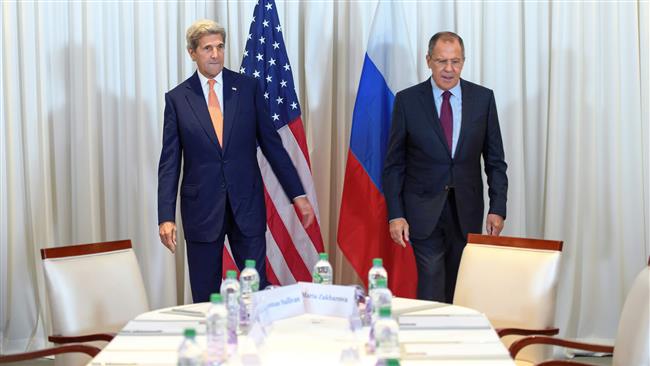-
Tips for becoming a good boxer - November 6, 2020
-
7 expert tips for making your hens night a memorable one - November 6, 2020
-
5 reasons to host your Christmas party on a cruise boat - November 6, 2020
-
What to do when you’re charged with a crime - November 6, 2020
-
Should you get one or multiple dogs? Here’s all you need to know - November 3, 2020
-
A Guide: How to Build Your Very Own Magic Mirror - February 14, 2019
-
Our Top Inspirational Baseball Stars - November 24, 2018
-
Five Tech Tools That Will Help You Turn Your Blog into a Business - November 24, 2018
-
How to Indulge on Vacation without Expanding Your Waist - November 9, 2018
-
5 Strategies for Businesses to Appeal to Today’s Increasingly Mobile-Crazed Customers - November 9, 2018
US, Russia make renewed push for partnership in Syria
American Secretary of State John Kerry told the press in Geneva that the vast majority of technical discussions had been completed but details had to be worked out. But critical sticking points remain unresolved and experts will remain in Geneva with an eye toward finalizing those in the coming days, he said.
Advertisement
Western Aleppo, where needs have “increased dramatically”, would be supplied via Damascus, he said. “We as one Syrian people can not accept aid at a time when worldwide organizations can not send aid to other cities under siege”.
Terrorist groups such as Islamic State (ISIL, also known as Daesh), as well as Jabhat Fatah al Sham (also known as Jabhat al-Nusra, or al-Nusra Front) are not part of the deal. His Russian counterpart Sergei Lavrov said the talks had managed to lower the level of mistrust. “The mutual trust is growing with every meeting”.
On Thursday, August 25, the United Nations special envoy for Syria Staffan de Mistura described the meeting as “important” and said it could help his drive to resume peace negotiations for the country. By reaching a deal with Russian Federation, which supports Syrian Assad, Washington hopes that it will help launch talks on a political transition in Syria. He suspended the talks in late April after a resurgence in the fighting.
US refusal to become a direct participant in the civil war, even as it escalates its air attacks against the Islamic State and says it will target the Front, has become increasingly hard to implement on the ground as the once-separate battlefields have edged closer together and multiple forces are fighting with different agendas. Mr.de Mistura joined the meeting with Mr. Kerry and Mr. Lavrov for about an hour and then left.
But Kerry stressed that they didn’t want to announce an agreement prematurely, only to watch it fall apart as happened with a previous cease-fire brokered by Moscow and Washington in February.
Kerry on Friday listed two main priorities to ensure that a prospective revamped ceasefire holds: responding to ceasefire violations by the Damascus regime and checking the rising influence of the former Al-Nusra Front.
“Until we have, neither of us are prepared to make an announcement that is predicated for failure”.
Any U.S. -Russian coordination would be complicated by the fact that Russia says there are Islamic extremist groups mixed in with the moderate rebels that the U.S. supports. “The Obama administration correctly perceives this as the last best chance to ease the killing during this administration and are therefore willing to swallow a bitter pill and get more on-board with the Russian initiative than they would have liked to in an ideal world”. Last week, the USA had to call for Russian help when Syrian warplanes struck an area not far from where US troops were operating.
According to the U.S. mission in Geneva, Kerry arrived in Geneva on Thursday evening for the talks.
In the days ahead the technical teams, which include U.S. and Russian military and intelligence experts, will try to figure out ways to separate the opposition groups, backed by the United States and Gulf Arab countries, from the jihadis.
“I think there’s a shift in the balance of intellectual opinion in the administration, toward postponing “Assad must go” in the name of providing humanitarian assistance to save lives”, Kupchan said.
Advertisement
“For the Russians, Assad is part of the solution – that’s a fundamental difference between the two sides”, said Derek Chollet, a senior adviser at the German Marshall Fund and a former member of the Obama administration.





























